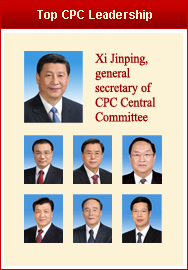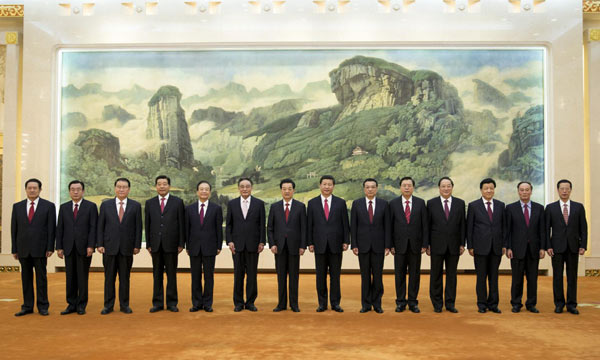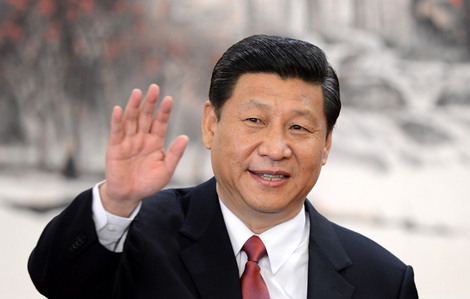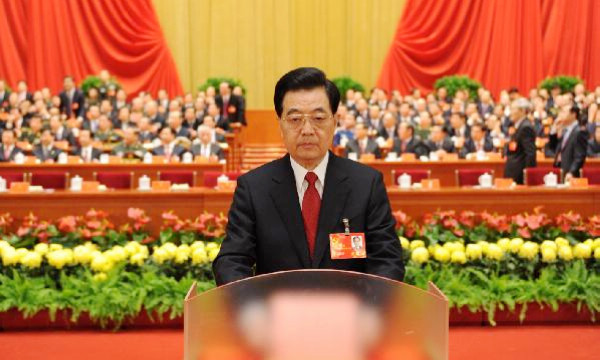Chinese Victory over Japan Day
(CPC Encyclopedia)
Updated: 2011-09-05 10:48
The Chinese Victory over Japan Day (on September 3 every year) is a name chosen for the day China won the War of Resistance against Japanese Aggression and subsequent anniversaries of that event. The term has been applied to the day after September 2, 1945, when the signing of the surrender document occurred.
From mid-July to early August 1945, Chairman of the Soviet Council of Ministers J. V. Stalin, U.S. President Harry Truman, and British Prime Minister Winston Churchill (later replaced by the newly-appointed Prime Minister Clement R. Attlee) held a meeting at Potsdam outside Berlin and issued the "Potsdam Declaration," demanding that the Japanese government immediately declare unconditional surrender of all its armed forces. On August 6, the United States dropped an atomic bomb on Hiroshima and on August 8, the Soviet Union government declared war on Japan. In the early hours of the following day, the Soviet army launched an all-out general offensive against Japan's elite Kwantung troops along a 4,000-kilometer battle line. On the same day, the United States dropped another atomic bomb on Nagasaki. The Soviet army rapidly wiped out the Kwantung forces and liberated China's four northeast provinces and the province of Qahar.
On Aug 9, 1945, Mao Zedong, Chairman of the CPC Central Committee, issued a statement saying that "the time has come to inflict final defeat on the Japanese aggressors and all their lackeys," calling on the anti-Japanese army and people to vigorously expand the liberated areas and reduce the areas under enemy occupation, be on their guard to avert the danger of civil war, and promote the formation of a coalition government.
On August 10, Commander-in-Chief Zhu De at the General Headquarters in Yan'an ordered anti-Japanese forces in liberated areas to quickly launch a big offensive to recover the lost territories and ordered the Japanese and puppet troops to surrender unconditionally within a stated time.
On Aug 11, 1945, Chiang Kai-shek ordered the Kuomintang troops to "step up the war effort and actively push forward." Ironically he "ordered" the people's forces to "stay where they are, pending further orders," and forbade them to "take presumptuous action on their own" against Japanese and puppet forces.
In the meantime he demanded the Japanese forces "defend themselves effectively" wherever they were, so as to prevent the people's forces from accepting their surrender. He went so far as to order the Japanese troops to recover the "lost land" from the newly liberated areas, and order the puppet troops to "be responsible for maintaining local order."
The people's forces refused to execute Chiang Kai-shek's order. The attempt of the Kuomintang army to seize the fruits of victory in the War of Resistance sharpened domestic tensions.
On Aug 15, Japan's emperor Hirohito formally announced acceptance of the unconditional surrender stipulated in the Potsdam Declaration. On Sept 2, a formal surrender ceremony was performed in Tokyo Bay, Japan aboard the battleship USS Missouri. On Sept 9, another ceremony was held in Nanjing in the theater of China, at which Yasuji Okamura, commander-in-chief of the Japanese invading forces in China, signed the instrument of surrender with China.
The eight-year War of Resistance against Japanese Aggression ended in victory for the Chinese people. The victory in the War of Resistance ended the imperialist war of aggression against China. It put an end to the situation in which China was repeatedly defeated by imperialists of the past 100 years.
It was a victory for all Chinese except traitors, collaborators and the pro-Japanese group. Because of this victory, China made a big stride forward in the course of new-democratic revolution. The War of Resistance, just as Mao Zedong pointed out, was "a wonder in the history of warfare, a heroic undertaking of the Chinese nation and a great earth-shaking cause.”
On Sept 3, Kuomintang government declared that all the people had a three-day vacation for celebration. They also set Sept 3 as the Chinese Victory over Japan Day. At the end of 1949, the Central People's Government Administration Council of People's Republic of China once set Aug 15 as the Chinese Victory of Japan Day. On Aug 13, 1951, the Chinese government released an announcement signed by Zhou Enlai, and set September 3 as the Chinese Victory over Japan Day once again.

Top News
Xi emphasizes adherence to CPC Congress spirit
Top legislator urges implementation of congress spirit
Moderately prosperous China brings chances to world
Video







